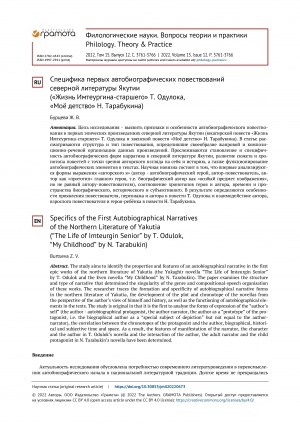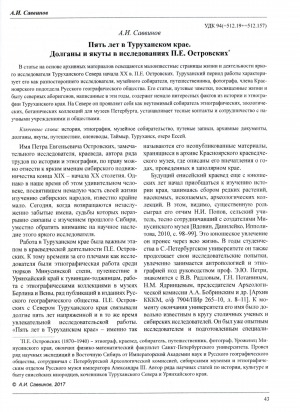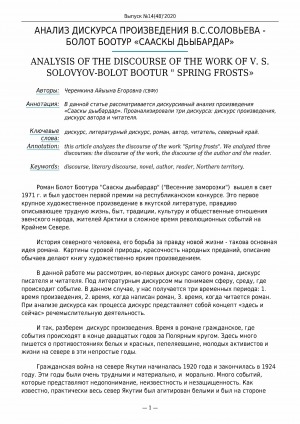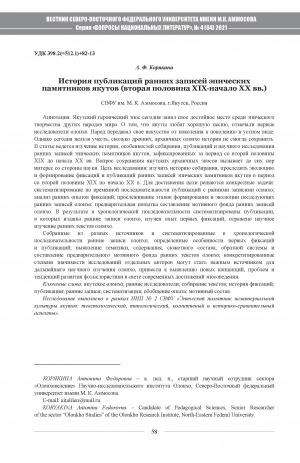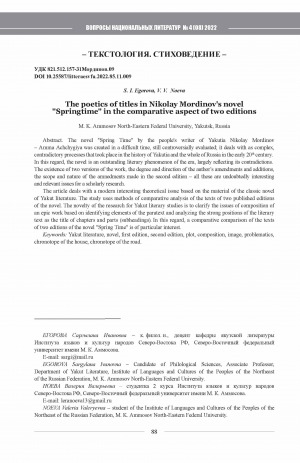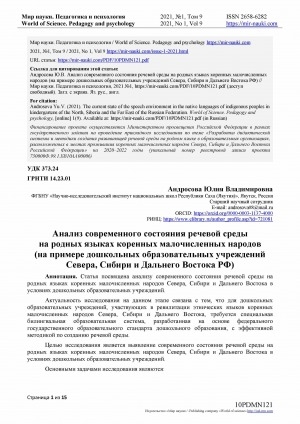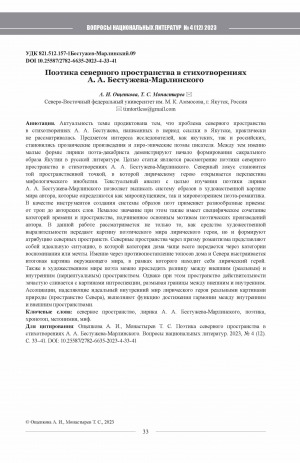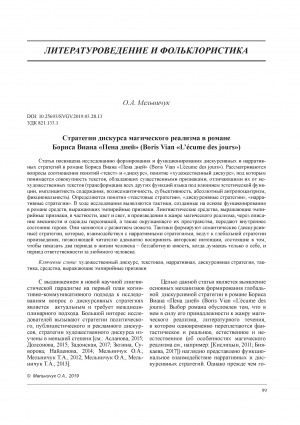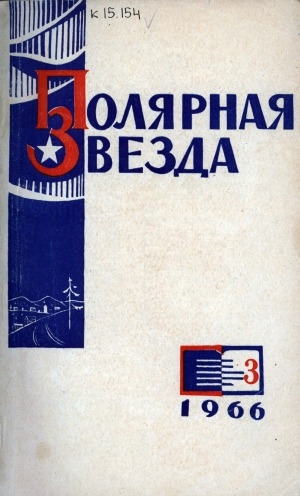Путевой очерк Тэки Одулока - первое произведение, посвященное путешествию по самым северным регионам Российской Федерации, предпринятому представителем самого малочисленного российского народа - юкагиром в 20-х годах ХХ века. В статье предлагаются результаты исследования содержания путевого очерка, его хронотопов, описания природы на разных географических широтах, культуры и быта уникальных народов-эндемиков, населяющих территорию: юкагиров (одулов), русско-устьинцев, чукчей, эвенов, эвенков (ламутов). Обосновано, что произведение представляет собой нарративное повествование, объективно связанное с историей и географическим расположением региона, политическими и культурными событиями, происходящими в Советском Союзе в начале ХХ века. Новизну представляет обоснование того, что очерк обладает признаками, характерными для травелога в его современном понимании, в связи с чем с интересом воспринимается читателями независимо от национальной принадлежности и места проживания. Показано влияние профессионального взгляда ученого-экономиста на стиль литературного повествования, что обеспечивает обогащение описания путешествия по конкретному маршруту и доказательную связь с современным экономическим состоянием описываемых регионов. Выделены законченные дискурсы, объединяющие документальное повествование, приведение реальных фактов, касающихся суровых условий выживания, описание быта и нравов представителей малочисленных народов-эндемиков. Использованы методы сравнения, литературной ретроспекции, которые позволили в художественной и документальной форме подтвердить предположения автора о развитии региона.
Teki Odulok's travel essay is the first work devoted to a journey through the northernmost regions of the Russian Federation undertaken by a compatriot, a representative of the smallest Russian people - the Yukaghir, in the 20s of the twentieth century. The article presents the results of the study of the content of the travelogue, its chronotopes, descriptions of nature at different geographical latitudes, culture and life of the unique endemic peoples inhabiting the territory: the Yukaghirs (Oduls), Russian-Ustintsy, Chukchi, Evens, Evenks (Lamuts). It is proven that the work is a narrative, objectively related to the history and geographical location of the region, political and cultural events in the Soviet Union at the beginning of the twentieth century. The novelty is justified by the fact that the essay has the characteristics of a travelogue in the modern sense, and therefore the readers, regardless of their nationality and place of residence, perceive it with interest. The influence of the professional view of a scientist-economist on the style of literary narration is shown, which provides an enriched description of travel along a specific route and an evidential connection with the modern economic state of the regions described. Complete discourses combining documentary narration, presentation of real facts about harsh conditions of survival and description of life and customs of representatives of small number of peoples - endemics - are highlighted. Methods of comparison and literary retroscopy were used, which allowed to confirm the author's assumptions about the development of the region in literary and documentary form. The article may be of interest not only to philologists and specialists in the field of national cultures, but also to interested readers.


